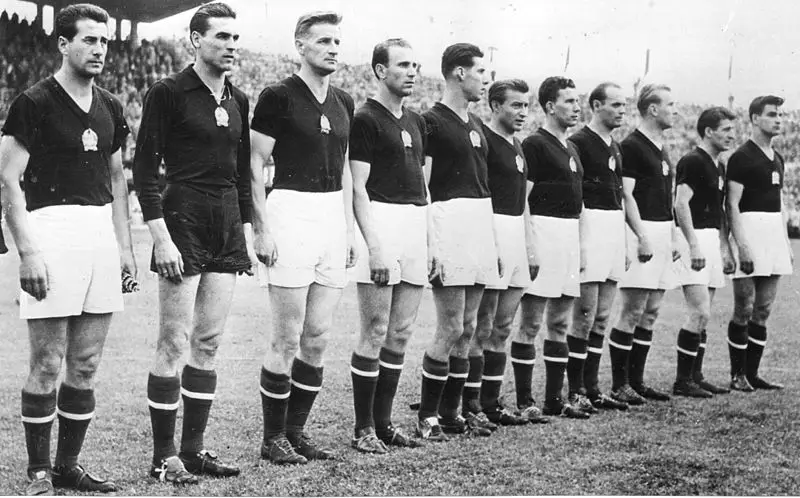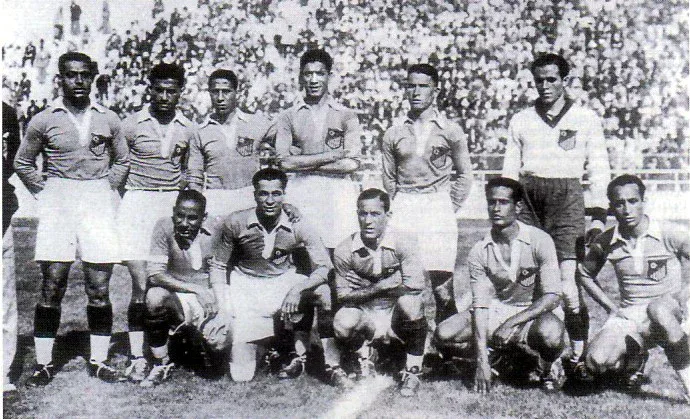There was a lot going on outside of football at the time.
Thanks to perhaps their greatest generation of players, Yugoslavia had comfortably qualified for the 1992 championships.
Prosinecki, Suker, Mijatovic & company made a fearsome side, with the Eastern Europeans real contenders for Euro 92.
But for all their ability on the football field, civil war breaking out in the Balkans meant Yugoslavia were banned before they had the chance to test themselves.
Much like Russia in the 2022 World Cup Qualifiers, Yugoslavia were removed from the tournament in retaliation to the conflict.
An Emerging Football Super Power
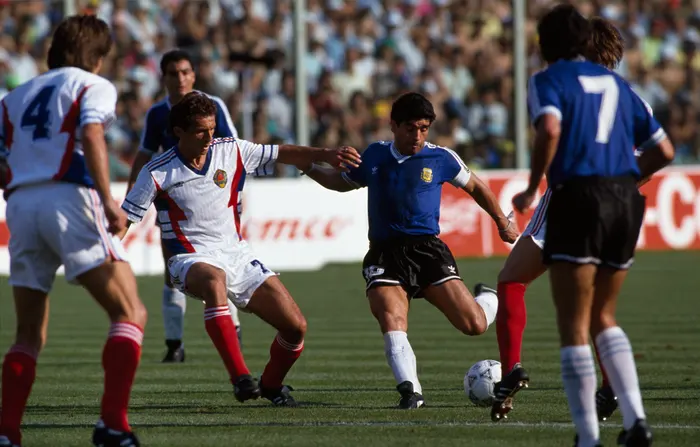
This happened at a time when Europe’s top leagues had long since been established, and some of Yugoslavia’s best players were plying their trade elsewhere in Europe.
They were a real threat going into the tournament, some even marking them among favourites thanks to Red Star’s triumph.
This was a true golden generation, a squad featuring many of the faces that won the U-20 World Cup a few years earlier.
At Italia 90 they had put on a great display, reaching the Quarter-finals and taking an Argentinian side featuring Diego Maradona to penalties.
They should have won too, having gone 2 up in the shootout, it looked all over but misses from both Brnovic and Hadzibegic gave the tie to Argentina.
Yugoslavia were just one goal away from a World Cup Semi-final.
For all the heartbreak, the side had so much to be proud of, and after some time getting over the loss and performing well in friendlies and national tournament qualifiers, they really felt they could do big things.
Fast forward to the Euro 92 qualifiers, they would bounce back from devastation with a bang. A 2-0 win over Northern Ireland in Belfast, a 4-1 thrashing of Austria and a 2-1 win over Denmark put them in control of their group.
They were quickly proving to be an elite side. As midfielder, Mehmed Bazdarevic would recount “Although Denmark was a great side, we were much better than them.”
But while the national side had been finding more and more success, political tensions had been rising for a decade ever since the president, Josip Broz Tito died.
The Beginning of the End
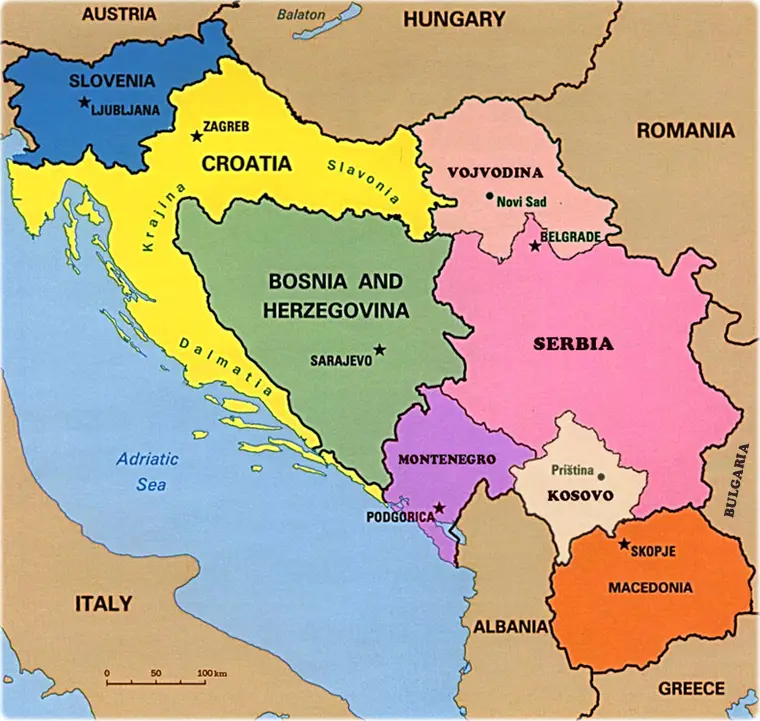
In 1974, Tito implemented a new constitution that put governing autonomy in the hands of the six respective republics.
After Tito’s death in 1980, there was nothing to stop the republics from once again drumming up support for breaking away.
Leaders of the six republics began to chip away power from the federal government, as many turned to national pride as a means to promote a greater unity among specific ethnic groups within each republic.
Serbian nationalists were the most vocal, standing out through their aggressive calls to unite Serbs across Yugoslavia in a greater Serbian state.
During his reign, nationalism within the former countries had been quashed, but after Tito’s death Serbian nationalist Slobodan Milosevic had risen to power in Belgrade.
Croatia saw their own jingoistic leader elected, as Franjo Tudjman emerged victorious.
These two leaders would instil a fractured community within Yugoslavia, as both republics began to push back against the other.
The tensions would come to a head when Red Star Belgrade travelled to Zagreb, and everything would kick off.
And by that I mean, the match would never kick off.
The Kick That Started A War
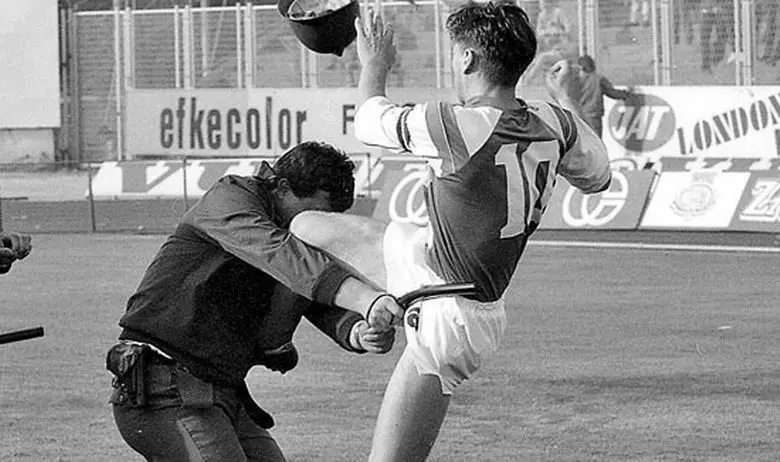
It started as Dinamo’s ultras started to throw stones at the Belgrade fans, which prompted the Serbs to respond in kind, uprooting seats and hurling them at the home fans.
Chants “Zagreb is Serbian” and “We’ll kill Tudjman” could be heard, as things had already turned ugly, and the game had become much bigger than football to many in the stadium.
I can only imagine the horror for those fans simply there to support the team, though such a statement may be naive on my part, national pride was at an all-time high, and the mentality was very much with us or against us.
There was no chance of this game just being about football. Home fans soon invaded the pitch in response to the anti-Croat chats, sparking a full-scale riot. Amid the mayhem, Dinamo player Zvonimir Boban, let loose a flying kick at the face of a police officer who the Dinamo player felt had been overly aggressive with one of his club’s supporters.
The Croatian having been dissatisfied with the Yugoslavian regime for many years, saw this kick as a symbol of their discontent, as Boban became a hero of the Croatian people.
“Here I was, a public figure prepared to risk his life, career,” Boban later recalled, “all for one ideal, one cause; the Croatian cause.”
The kick would later be labelled by many as ‘the kick that started a war’, As the riot in many’s eyes served as the catalyst for the Croatian and Balkan civil wars that followed.
The Yugoslav FA subsequently suspended Boban for six months, ruling him out of the World Cup.
Soon the national team would see the consequences from a footballing perspective. War had not yet broken out as Yugoslavia played their final friendly before Italia 90.
Bigger Than Football
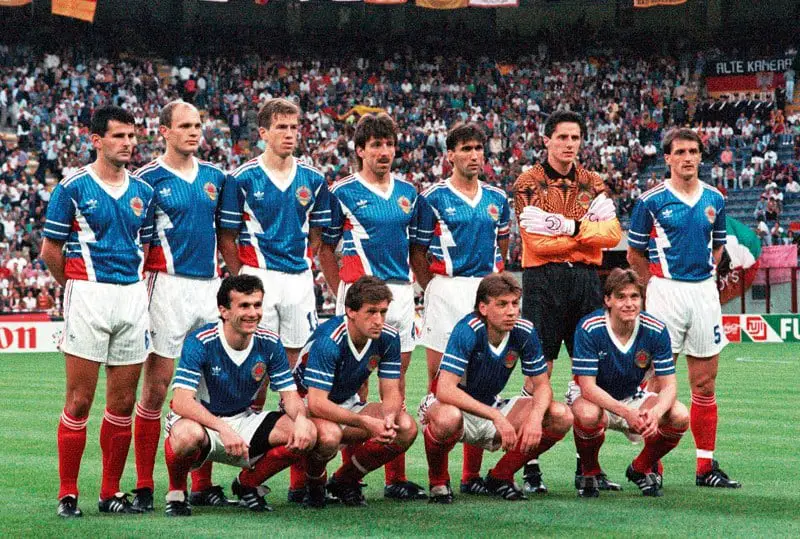
The team just wanted to focus on football, they weren’t political figures, they just knew how to play football, and with squad harmony between members as good as ever, Faruk Hadžibegić would make things about football.
He would describe reacting instinctively. “I clapped my hands and shouted, ‘Let’s go, us 11 against 20,000 of them,’ and that was caught by TV. We were preparing for the World Cup and our own fans were booing us.”
Even amidst all of the tensions, with war becoming more and more likely, Hadžibegić recounted that team spirit was as good as ever.
“I never felt any tensions between players of different nationalities,” he insists. “I was born in Sarajevo, but I always felt like a proud Yugoslav and I couldn’t say that any of my team-mates felt different.”
“Sometimes we’d joke about stereotypes of people from different Yugoslav republics, but it was just dressing room banter which happens with every team, with every group of friends. Nothing ever changed inside the team. We were aware of everything that was happening around us, but we all ignored it.”
In 1991, the aforementioned shock of Red Star Belgrade beating Marseille would prove a watershed moment for the Yugoslavian team. It was a victory for the country in its own right and the closest thing to an international trophy they’d experience.
At the same time, Red Star Belgrade were in the hunt for another domestic trophy, in what would prove to be the final season of the Yugoslavian league.
A year on from the riot that shook Yugoslavia and much of the football world, Red Star faced Zagreb away, travelling once again to the Maksimir Stadium.
Political and Sporting Corruption
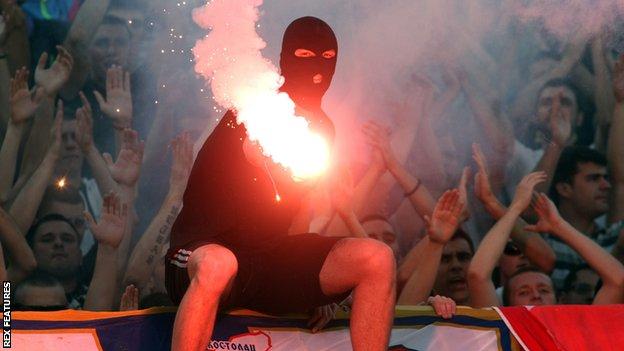
The coach, Petrovic would provide a shocking incite as the ref would explain his decision.
“At half-time, I protested vehemently with the referee, and from what he told me it was apparent between the lines that we had to lose the game for political reasons. Tudjman was sitting in the stands and he didn’t want a Serbian team celebrating in front of him in Zagreb, at a moment when he was creating an independent state.”
Croatian independence was declared in June 1991, prompting many of Yugoslavia’s best players to withdraw from the national side. They lost the likes of Prosinecki, star striker Suker and Symbol of Croatian independence, Boban.
Despite the independence, war in Croatia continued for 4 years after their declaration.
Slovenia soon followed suit.
Then, in 1992, Partizan and Red Star met in a game between the two big Serbian clubs.
As much as the atmosphere should have been one of hostility, both sets of fans would unite as a Serbian paramilitary group called ‘The Tigers’ held up Croatian road signs in the crowd.
The two sets of fans applauded wildly, as the group showed off their trophies taken from the war in Croatia.
Just weeks later, more war broke out, this time Bosnia and Herzegovina declaring independence, as the Bosnian war broke out.
Serbian forces commenced ‘the Siege of Sarajevo’, an onslaught lasting nearly 4 years.
A Side Broken by War
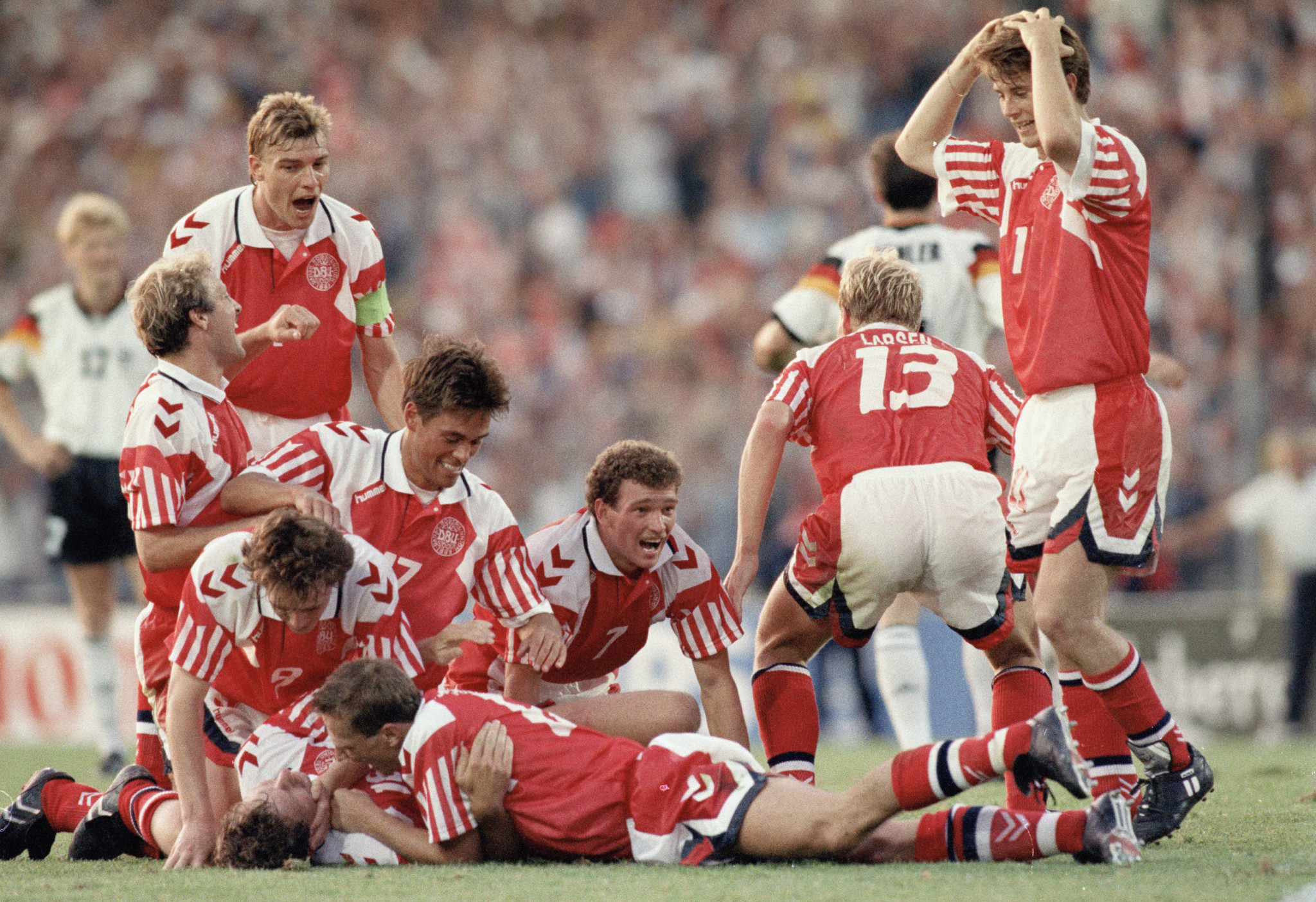
“My country doesn’t deserve to play in the European Championship.” his departing remark.
Not that his decision mattered in the end. Yugoslavia was sanctioned by the UN after more Shelling of Sarajevo was ordered, and FIFA quickly banned the national team from international football.
The team that replaced them, Denmark, would go on to win Euro 1992.
To this day, the Yugoslavian national team of 1992 will always remain a poignant what if? To this day, many feel that side would not only have won the Euros but should have gone on to do even greater things.
The fact both the players at teams like Red Star and the national side were able to continue to play great football, despite dealing with such turmoil in their homeland is testament to both the players’ footballing ability and mental fortitude.
“if we’d played that tournament in normal circumstances, if we’d had a chance to compete, I’m sure we would have won it. We would have won Euro 92.”

